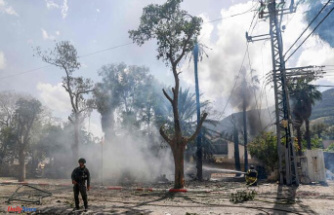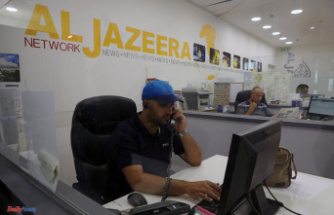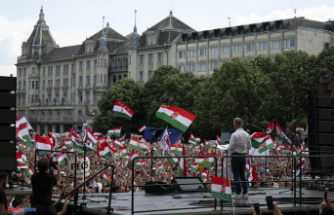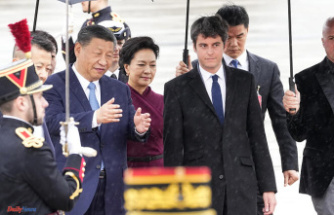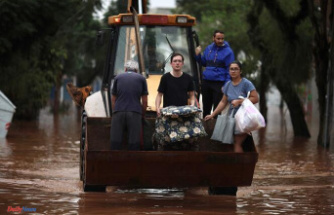North Rhine-Westphalia is a world leader in ballooning. That is clear after the prestigious Gordon Bennett competition. The pilots risk a lot to win. The war in Ukraine was also a challenge at this year's edition.
Duisburg/Zarewo (dpa/lnw) - The Duisburg father-son team Wilhelm and Benjamin Eimers has won the renowned Gordon Bennett balloon race. The two landed near the Bulgarian town of Tsarevo on the Black Sea, 1570 kilometers as the crow flies from the starting point in St. Gallen in Switzerland - and thus got further than all of their 16 opponents. With Andreas Zumrode (Havixbeck near Münster) and Axel Hunnekuhl (Mettingen) in third place, another NRW team made it onto the podium.
According to the organizers, the Coupe Aéronautique Gordon Bennett - the long-distance world championship for gas balloon pilots - is the oldest and most prestigious event in aviation. It was initiated in 1906 by American sports pioneer James Gordon Bennett junior. The principle is very simple: whoever gets furthest from the starting point without stopping wins.
Benjamin Eimers said they landed a few hundred meters off the coast of the Black Sea in extremely strong winds. "Another 300 meters further and we would have ended up in the forest". If you want to win the World Cup, you have to take a certain risk, said the 37-year-old. You have to be a little crazy for that.
Together with his 72-year-old father Wilhelm - one of the most experienced pilots in the world with 1300 gas balloon rides - he started in St. Gallen on Friday. A good 60 hours later, the two landed in Bulgaria, after the protest period had expired, the World Cup victory was official on Tuesday. Benjamin Eimers said it was the first time that a father-son team had won the 65th edition of the race.
The two couldn't have gone much further - the background is the war in Ukraine. The landing site is just over 20 kilometers from the border with Turkey. Driving across the country or across Ukrainian territory would have resulted in disqualification.
Third-placed Andreas Zumrode said his balloon missed the Turkish border by just 500 meters at an altitude of 5,000 meters. He and his teammate Hunnekuhl had therefore decided to advance to the easternmost mainland region of Greece in order to get ahead of a team from Switzerland. "We had to drive into this corner, otherwise we wouldn't have had a chance," said Zumrode. The maneuver was crowned with success: nine kilometers ahead of the Swiss. Another Swiss team made it to second place.
The ground teams are also crucial for success, said Zumrode. The three German teams therefore shared a team of six, who informed them via mobile phone about restricted areas, weather forecasts or wind directions. The people on the ground also did great work and covered long distances, Zumrode said. A team of two drove about 40 hours at a time to get to the landing site.
The winning teams are now heading back to St. Gallen for the award ceremony on Saturday. "But while we're in Greece, we'll take a little vacation," said Zumrode.


